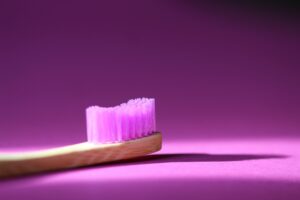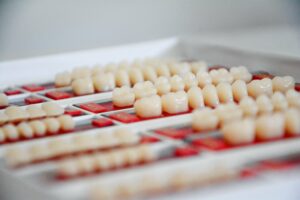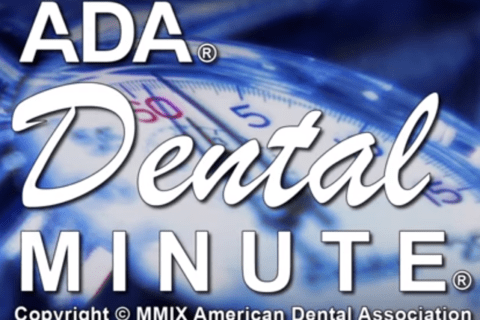Can Porcelain Veneers Get Cavities?
Introduction
When it comes to achieving a dazzling smile, porcelain veneers have become a popular choice for many people. These thin shells of porcelain are custom-made to cover the front surface of teeth, effectively improving their appearance and providing a natural-looking solution to various dental issues. However, some individuals might wonder whether these veneers can develop cavities and how to maintain optimal oral health while enjoying the benefits of a stunning smile. In this article, we will explore the connection between porcelain veneers and cavities, the proper care required to keep them cavity-free, and essential FAQs to help you make an informed decision.
Understanding Porcelain Veneers
Porcelain veneers are thin, custom-made shells crafted from dental-grade ceramic material that are bonded to the front surface of teeth. They are an effective cosmetic dentistry solution for individuals seeking to improve the appearance of teeth with various imperfections, such as discoloration, chips, gaps, and minor misalignments. With the ability to mimic the natural look of teeth, porcelain veneers have gained popularity among people looking for a radiant and flawless smile.
The Cavity Myth: Can Porcelain Veneers Get Cavities?
One common misconception is that porcelain veneers can develop cavities. In reality, porcelain veneers themselves are not susceptible to cavities as they are non-porous and do not decay. However, the teeth beneath the veneers can still be at risk of cavities if not properly cared for. It’s essential to remember that while veneers can improve the appearance of your smile, they do not provide protection against dental issues like decay.
Maintaining Oral Health with Porcelain Veneers
To ensure that your natural teeth remain cavity-free, proper oral hygiene practices are crucial. Brushing your teeth twice a day with fluoride toothpaste and flossing daily will help remove plaque and food particles, reducing the risk of cavities. Additionally, regular visits to your dentist for check-ups and cleanings are vital for monitoring the health of both your teeth and veneers.
Dental Hygiene Tips for Porcelain Veneers

- Use a soft-bristled toothbrush and non-abrasive toothpaste to avoid damaging the veneers.
- Avoid biting or chewing on hard objects, such as ice or pens, to prevent potential veneer damage.
- Refrain from using your teeth as tools to open packages or bottles.
- Limit consumption of sugary and acidic foods and beverages, as they can contribute to tooth decay.
- Consider using a mouthguard while participating in sports or activities that may pose a risk to your teeth.
Common Misconceptions about Porcelain Veneers

“Porcelain Veneers Look Unnatural”
Contrary to this belief, modern porcelain veneers are designed to match the color, shape, and size of your natural teeth, ensuring a seamless and natural appearance.
“Porcelain Veneers Are Irreversible”
While the process of getting veneers requires some enamel removal, advancements in dentistry allow for minimal alterations, and the procedure is often considered reversible.
“Porcelain Veneers are Only for Aesthetics”
While primarily used for cosmetic purposes, porcelain veneers can also serve as a protective layer for damaged teeth, potentially preventing further deterioration.
Advantages of Porcelain Veneers
Porcelain veneers offer numerous benefits, including:
- Natural and Aesthetic Appearance
- Stain Resistance
- Durability and Longevity
- Minimally Invasive Procedure
- Improved Confidence and Self-Esteem
Disadvantages of Porcelain Veneers
Despite their advantages, porcelain veneers also have some drawbacks, such as:
- Cost
- Irreversibility
- Potential Sensitivity
- Maintenance Requirements
- Longevity
- With proper care and maintenance, porcelain veneers can last for many years, providing a long-lasting solution for an enhanced smile. However, individual factors such as oral hygiene practices and lifestyle choices can influence their longevity.
The Cost of Porcelain Veneers
The cost of porcelain veneers can vary depending on factors like the number of veneers required, the complexity of the case, and the expertise of the dentist. While they may represent a significant investment, many individuals find the results well worth it.
Comparing Porcelain Veneers with Other Dental Options
Porcelain veneers are not the only cosmetic dental option available. It’s essential to consult with a qualified dentist to determine which treatment best suits your unique needs. Other options may include dental bonding, teeth whitening, or orthodontic treatments.
Consultation and Preparation for Porcelain Veneers
Before getting porcelain veneers, a consultation with a cosmetic dentist is essential. During this appointment, the dentist will assess your oral health, discuss your goals, and explain the veneer procedure in detail. If you are a suitable candidate, the dentist will begin preparing your teeth for the veneers.
The Procedure: Getting Porcelain Veneers

The process of getting porcelain veneers typically involves the following steps:
Teeth Preparation: A small amount of enamel is removed from the front of the teeth to accommodate the veneers.
Impression: An impression of your teeth is taken to create custom veneers that perfectly fit your smile.
Temporary Veneers: While waiting for the permanent veneers to be fabricated, temporary veneers may be placed to protect your teeth.
Bonding: The final veneers are bonded to your teeth using a dental adhesive.
Final Adjustments: The dentist will make any necessary adjustments to ensure a comfortable and precise fit.
Post-Procedure Care and Considerations
After getting porcelain veneers, it’s essential to follow these post-procedure care tips:
- Maintain good oral hygiene to keep both your teeth and veneers in optimal condition.
- Avoid biting into very hard or sticky foods that could potentially damage the veneers.
- Attend regular dental check-ups to monitor the health of your veneers and address any concerns.
Transforming Your Smile with Porcelain Veneers
Porcelain veneers offer a life-changing solution for individuals looking to achieve a beautiful and confident smile. By addressing various dental imperfections, veneers can significantly improve self-esteem and enhance overall facial aesthetics.
Belmont Dental for Porcelain Veneers
In conclusion, porcelain veneers themselves cannot get cavities, but it’s essential to maintain good oral hygiene to protect the teeth beneath them. Proper care, regular dental visits, and a healthy lifestyle are key to ensuring the longevity of both your veneers and your natural teeth. If you desire a radiant smile that boosts your confidence, porcelain veneers can be a fantastic option to consider. To see if porcelain veneers are the right solution for you and your goals, contact Belmont Dental Group today.
FAQs
Are porcelain veneers stain-resistant?
Yes, porcelain veneers are generally stain-resistant, making them excellent for maintaining a bright smile.
Can I have my veneers removed if needed?
While veneers are designed to be durable and long-lasting, they can be removed by a qualified dentist if necessary.
Will getting veneers hurt?
The process of getting veneers is generally painless, as local anesthesia is used during the procedure.
Can veneers fix severely misaligned teeth?
Porcelain veneers are more suitable for addressing minor misalignments. In cases of severe misalignment, orthodontic treatment may be recommended.
How often should I replace my porcelain veneers?
With proper care, porcelain veneers can last between 10 and 15 years, or even longer. However, individual factors can impact their longevity.

